NSYSU Clinical Medicine Teaching and Research Center established in KSVGH
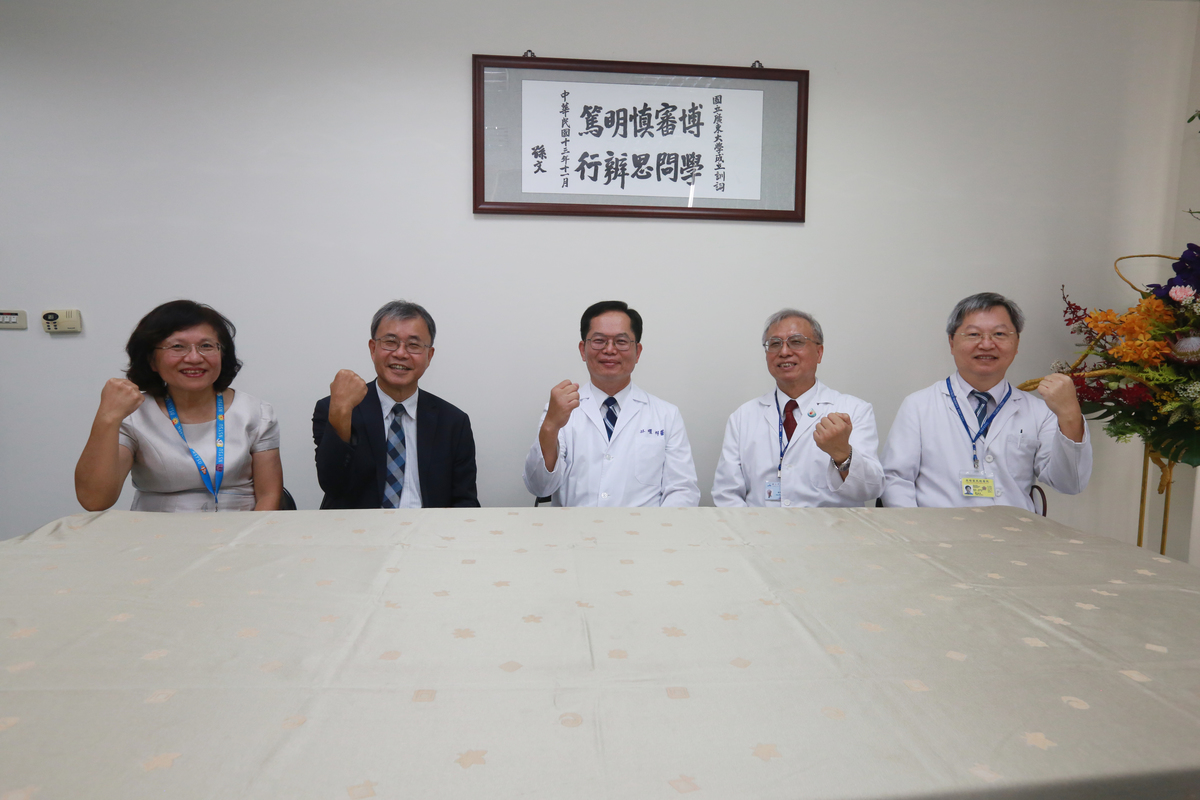
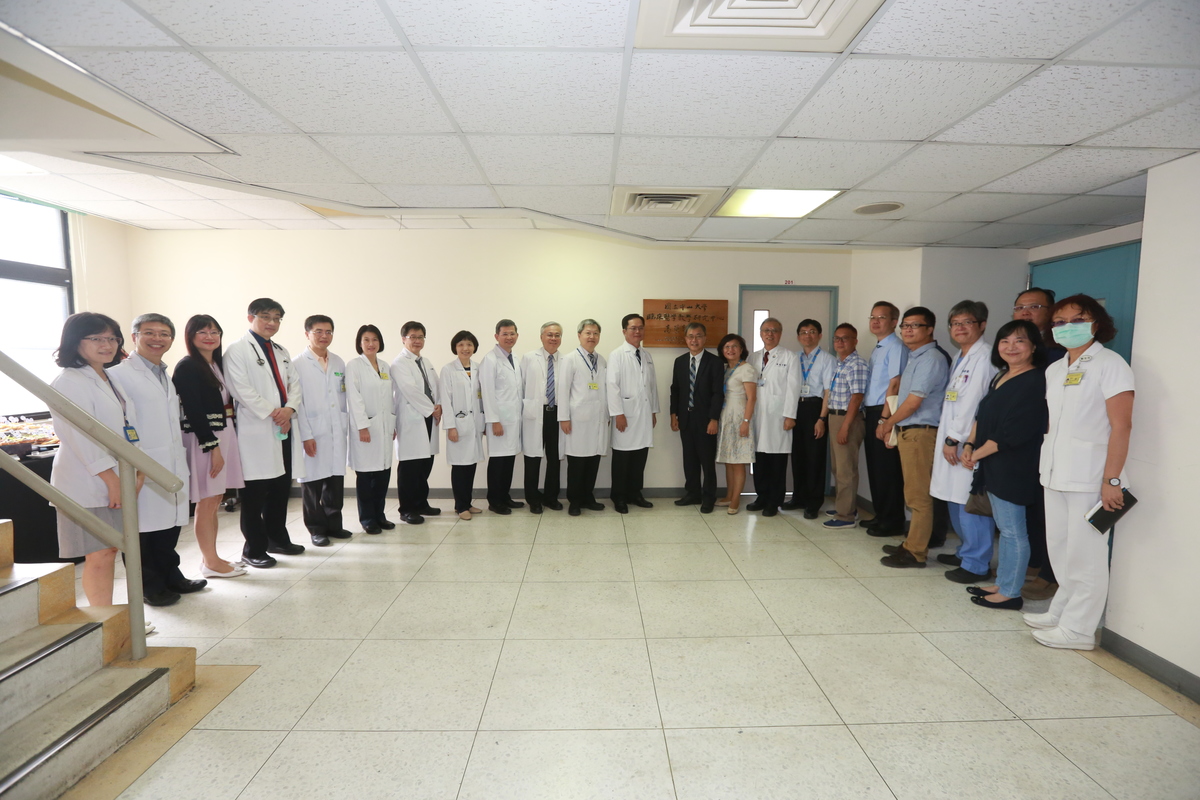
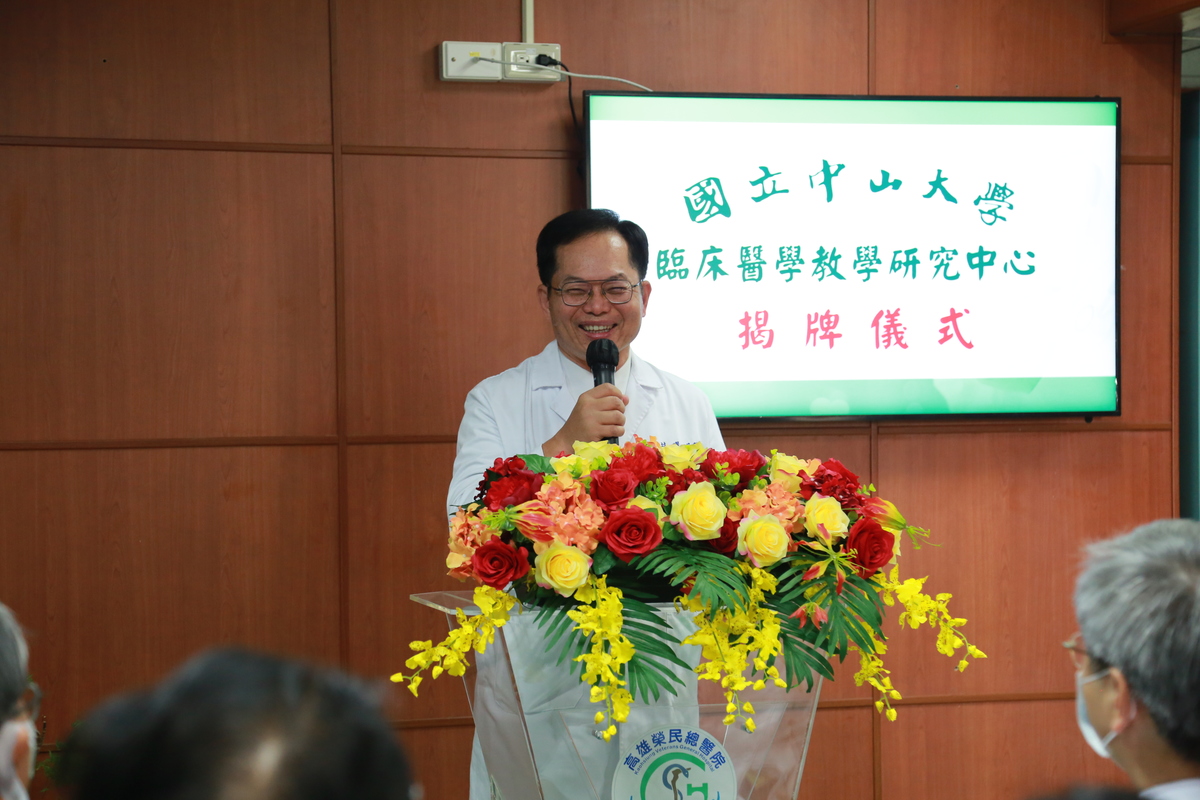
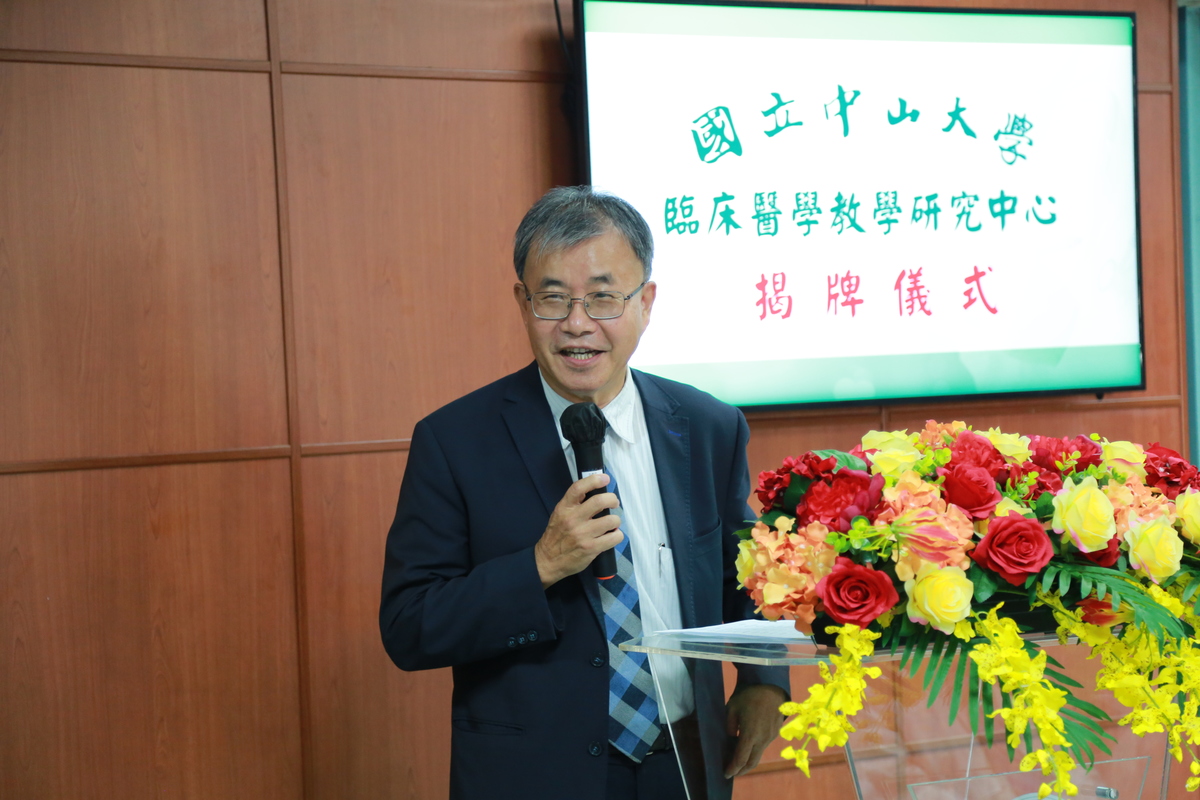
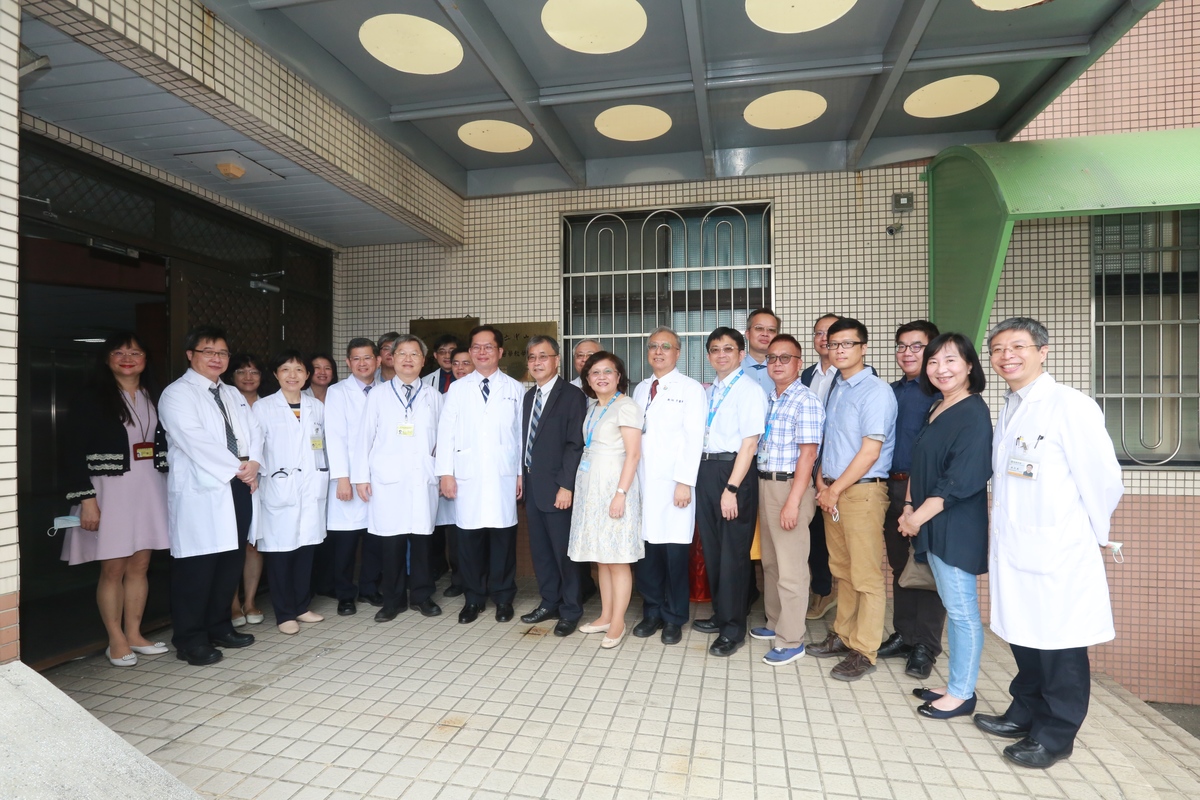
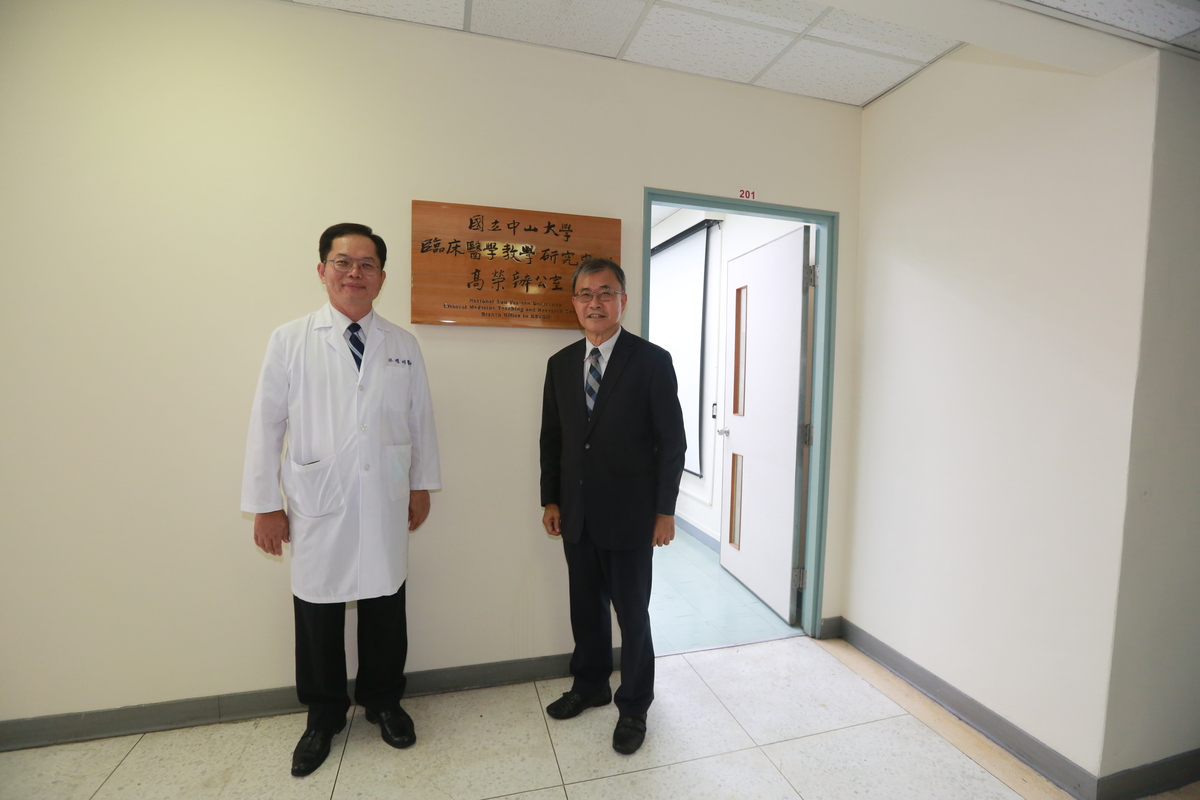
The establishment of a new Branch Office of the NSYSU Clinical Medicine Teaching and Research Center in Kaohsiung Veterans General Hospital (KSVGH) is another advanced step in the preparations for the College of Medicine. In May, NSYSU tied a strategic alliance with KSVGH, which will be the main teaching hospital, and in August hired Prof. Shaw-Yeu Jeng, the former Vice Superintendent of KSVGH, as the Director of the Provisional Office of NSYSU Post-Baccalaureate Medicine School. Recently, in October, NSYSU opened a Clinical Medicine Teaching and Research Center Branch Office in KSVGH. The office will enhance the cooperative relationship between NSYSU and KSVGH in teaching, research, and cultivation of clinical medicine professionals to improve the quality of healthcare in the Kaohsiung-Pingtung-Penghu-Taitung area and the outer islands, safeguard citizens’ health, and contribute to social well-being.
NSYSU and KSVGH will resolve the difficult situation of rural healthcare resources to improve citizens’ wellbeing, said NSYSU President Ying-Yao Cheng. He emphasized that there is a large disparity in healthcare resources between the south and the north of Taiwan, and that there is no public medicine school in the Kaohsiung-Pingtung-Penghu-Taitung area, which makes meeting the goals of the public healthcare policy challenges. From September 1st, 2019, all physicians fall under the Labor Standards Act; according to National Health Research Institutes there is a shortage of 2,000 resident doctors and 1,000 attending physicians. By 2032, the shortage will grow to 5,552 and 7,065 respectively. Kaohsiung, Pingtung, Penghu and Taitung counties are largely mountainous areas, with several outer islands, which have an aging population and insufficient medical personnel. Shiow-Fon Tsay, the Senior Vice President of the University, pointed out that since 2017, the College of Management of NSYSU has partnered with KSVGH to offer a master's credit course in health care management. So far, about 300 students have participated in the training, and nearly 20 graduates of master's and doctoral programs have been trained. Moreover, the two parties have been cooperating in research for nearly 5 years. NSYSU and KSVGH work together to train professional medical personnel and improve the quality of medical care in the region.
Superintendent Yaoh-Shiang Lin of KSVGH said that the 6 missions of KSVGH are: cultivation of outstanding professionals, frequent evaluation, innovative R&D, excellent medical treatment, financial management, creation of a service culture, and that these also correspond to the missions of NSYSU. KSVGH pays a lot of attention to professionals’ education and employees’ system, actively enhances the teaching and research practice, and engages in innovative R&D in medical centers. He said that in the view of aging population and shortage of workforce, KSVGH will combine innovative thinking with artificial intelligence, sensing, Big Data, and cloud technologies for application in healthcare to improve processes in outpatient services, emergency treatment, surgical treatment, pharmaceutical care, administrative management processes to facilitate the collaboration of different teams and deliver the best healthcare services so as to obtain the Health Smart Taiwan certification of the Joint Commission of Taiwan and advance together with NSYSU in the future. “The excellent R&D capacity of a top university will be the source of innovation.”
The Rapid Screening Research Center for Toxicology and Biomedicine (RSRCTB) at NSYSU developed the mass spectrometry to detect toxins or drugs on patient’s skin in one minute and succeed in applying this technology in clinical and toxicological treatment. In the future, it can be used for rapid screening of patients with viruses such as COVID-19. The Center of Crystal Research developed scintillating crystals to apply in the core elements of positron-imaging detectors to provide bioimaging for the detection of cancer and Alzheimer’s disease. The technology allowed the detection of cancers of 10 mm of size, now even as small as 4 mm.
Besides, NSYSU also used AI technology for interdisciplinary research to develop a tongue diagnosis system for Chinese medical diagnosis. President Ying-Yao Cheng said that this system is used in Chinese medicine departments in first-level teaching hospitals in the whole Taiwan and that sensing chips, medical image analysis, smart assistive devices, and the VR platform for treatment development are all advantages of the School of Post-Baccalaureate Medicine. Aerosol Science Research Center, the only of such kind in Asia, is dedicated to research in PM 2.5-preventive medicine, aerosol biomedical research, and diseases caused by PM 2.5, such as diseases of the respiratory tract and lungs, cardiovascular diseases, the causes and treatment of childhood brain development disorders to establish the bases of preventive medicine. The team of the Department of Electrical Engineering developed the contact-free biosensing system to timely monitor patients’ heartbeat, respiration, and body temperature. It can be applied in cloud health management, and care systems for the elderly and infants.
NSYSU and KSVGH will resolve the difficult situation of rural healthcare resources to improve citizens’ wellbeing, said NSYSU President Ying-Yao Cheng. He emphasized that there is a large disparity in healthcare resources between the south and the north of Taiwan, and that there is no public medicine school in the Kaohsiung-Pingtung-Penghu-Taitung area, which makes meeting the goals of the public healthcare policy challenges. From September 1st, 2019, all physicians fall under the Labor Standards Act; according to National Health Research Institutes there is a shortage of 2,000 resident doctors and 1,000 attending physicians. By 2032, the shortage will grow to 5,552 and 7,065 respectively. Kaohsiung, Pingtung, Penghu and Taitung counties are largely mountainous areas, with several outer islands, which have an aging population and insufficient medical personnel. Shiow-Fon Tsay, the Senior Vice President of the University, pointed out that since 2017, the College of Management of NSYSU has partnered with KSVGH to offer a master's credit course in health care management. So far, about 300 students have participated in the training, and nearly 20 graduates of master's and doctoral programs have been trained. Moreover, the two parties have been cooperating in research for nearly 5 years. NSYSU and KSVGH work together to train professional medical personnel and improve the quality of medical care in the region.
Superintendent Yaoh-Shiang Lin of KSVGH said that the 6 missions of KSVGH are: cultivation of outstanding professionals, frequent evaluation, innovative R&D, excellent medical treatment, financial management, creation of a service culture, and that these also correspond to the missions of NSYSU. KSVGH pays a lot of attention to professionals’ education and employees’ system, actively enhances the teaching and research practice, and engages in innovative R&D in medical centers. He said that in the view of aging population and shortage of workforce, KSVGH will combine innovative thinking with artificial intelligence, sensing, Big Data, and cloud technologies for application in healthcare to improve processes in outpatient services, emergency treatment, surgical treatment, pharmaceutical care, administrative management processes to facilitate the collaboration of different teams and deliver the best healthcare services so as to obtain the Health Smart Taiwan certification of the Joint Commission of Taiwan and advance together with NSYSU in the future. “The excellent R&D capacity of a top university will be the source of innovation.”
The Rapid Screening Research Center for Toxicology and Biomedicine (RSRCTB) at NSYSU developed the mass spectrometry to detect toxins or drugs on patient’s skin in one minute and succeed in applying this technology in clinical and toxicological treatment. In the future, it can be used for rapid screening of patients with viruses such as COVID-19. The Center of Crystal Research developed scintillating crystals to apply in the core elements of positron-imaging detectors to provide bioimaging for the detection of cancer and Alzheimer’s disease. The technology allowed the detection of cancers of 10 mm of size, now even as small as 4 mm.
Besides, NSYSU also used AI technology for interdisciplinary research to develop a tongue diagnosis system for Chinese medical diagnosis. President Ying-Yao Cheng said that this system is used in Chinese medicine departments in first-level teaching hospitals in the whole Taiwan and that sensing chips, medical image analysis, smart assistive devices, and the VR platform for treatment development are all advantages of the School of Post-Baccalaureate Medicine. Aerosol Science Research Center, the only of such kind in Asia, is dedicated to research in PM 2.5-preventive medicine, aerosol biomedical research, and diseases caused by PM 2.5, such as diseases of the respiratory tract and lungs, cardiovascular diseases, the causes and treatment of childhood brain development disorders to establish the bases of preventive medicine. The team of the Department of Electrical Engineering developed the contact-free biosensing system to timely monitor patients’ heartbeat, respiration, and body temperature. It can be applied in cloud health management, and care systems for the elderly and infants.
Click Num:
Share
